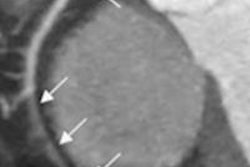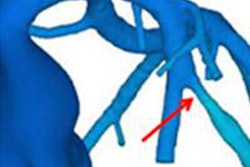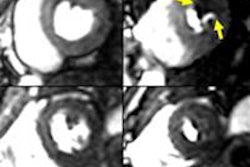Thursday, December 5 | 10:40 a.m.-10:50 a.m. | SSQ10-02 | Room E450B
Shrinkage of 10% or more on CT post-treatment is highly predictive of good outcomes in renal cell carcinoma, according to a new study from Boston.The study involves patients with metastatic renal cell carcinoma who were treated with vascular endothelial growth factor (VEGF)-targeted therapies (angiogenesis inhibitors) in clinical trials at Dana-Farber Cancer Institute, explained Dr. Katherine Krajewski.
"We have found that patients in this population who achieve 10% or more tumor shrinkage on their first follow-up CT after treatment initiation experience better outcomes," she said.
Specifically, these patients experience longer times to treatment failure and longer overall survival than patients whose tumor shrinkage is less than 10%.
The study examined 66 metastatic renal cell carcinoma patients with 165 lesions who underwent thoracic and abdominal CT scans at baseline and at the first follow-up after therapy. Measurements were performed according to Response Evaluation Criteria in Solid Tumors (RECIST), the group reported.




















